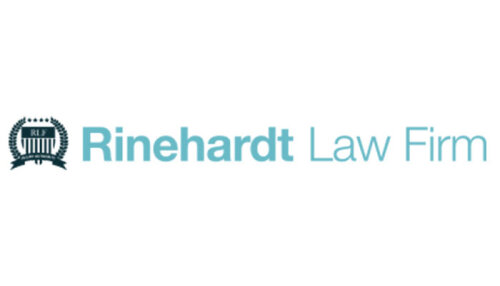Best Assault & Battery Lawyers in Ontario
Share your needs with us, get contacted by law firms.
Free. Takes 2 min.
List of the best lawyers in Ontario, United States
About Assault & Battery Law in Ontario, Canada
Ontario is a province in Canada, and the relevant offences are found in the Criminal Code of Canada, not in United States statutes. In Canadian law, the term “battery” is not typically used; the correct term is “assault.” An assault can involve direct contact or the threat of imminent harm that causes the victim to fear violence. The charges may be pursued as either summary offences or indictable offences, depending on the circumstances and the Crown prosecutor’s decision.
Ontario courts handle assault cases through the provincial court system, guided by federal legislation. The Crown must prove elements such as intentional application or threat of force, without the other person’s consent, and the lack of a lawful excuse. Defences commonly raised include self defense, lack of intention, or mistaken identity. A defence lawyer can help assess the strength of the case, potential defences, and appropriate court strategy.
Source: Justice Canada, Criminal Code of Canada - overview of assault offences and the framework for charging and trial processes. justice.gc.ca
Source: Ontario Court of Justice guidance on how assault charges are processed in Ontario courts and the role of defence counsel. ontariocourts.ca
Why You May Need a Lawyer
Facing an assault charge can have significant consequences even at the early stages. A lawyer helps protect your rights, navigate bail considerations, and build a defence tailored to your case. Below are concrete real‑world scenarios where legal counsel is essential in Ontario.
- You are charged after a domestic dispute and the police allege threats or bodily contact. A lawyer can assess the relationship context, potential protective orders, and the best defence strategy.
- You are accused of assault with a weapon or causing bodily harm after a bar fight with multiple witnesses and video footage. An attorney can challenge the evidence and argue for downgraded charges if appropriate.
- You were arrested on the street and told you assaulted a police officer or resisted arrest. A solicitor can review the arrest process and ensure your rights were respected.
- You face a duplicate or mistaken identity charge because witnesses misidentified you in CCTV footage. A defence lawyer can coordinate with investigators to verify identity and alibi facts.
- Your prior criminal record or prior assaults are cited in sentencing discussions. A lawyer can present mitigating factors and seek appropriate diversion or sentencing options.
- You are a youth charged under the Youth Criminal Justice Act. A defence attorney experienced with YCJA matters can advocate for age‑appropriate accountability and alternatives to detention.
Local Laws Overview
Two main sources govern assault in Ontario: federal criminal legislation and provincial court processes. The Criminal Code of Canada sets out the offences of assault and related forms, while Ontario courts apply these provisions through provincial rules and procedures.
- Criminal Code of Canada - This federal statute defines assault, assault with a weapon or causing bodily harm, and aggravated assault. It also explains the distinctions between summary and indictable offences, bail, and sentencing guidelines. The code is regularly updated by Parliament, and current text is published on federal government sites. justice.gc.ca
- Youth Criminal Justice Act (YCJA) - Applies to offenders who are youths (under 18 at the time of the offence). The YCJA emphasizes rehabilitation and age‑appropriate processes while preserving public safety. laws-lois.justice.gc.ca
- Ontario Court Processes and Rules - Ontario residents charged with assault proceed through the Ontario Court of Justice or the Superior Court of Justice, depending on the offence and proceedings. The official court pages explain arraignment, bail hearings, and trial timelines. ontariocourts.ca
Recent changes to assault related procedures are communicated through federal and provincial updates. Always verify the current text of the Criminal Code and Ontario court rules to ensure compliance with the latest legal standards. Note: statutes and procedures can be amended; consult official sources for up-to-date information.
Frequently Asked Questions
What is assault under Canadian law?
Assault in Canada is defined as applying force to another person, or attempting or offering to apply force, without consent. It can be proven by direct contact or by the threat that causes reasonable fear of imminent violence.
How do I know if I should hire a lawyer for an assault charge?
Consider hiring a lawyer if you face arrest, a charge, a police bail option, or a potential conviction. A lawyer helps protect your rights, evaluate evidence, and plan a defence strategy before court appearances.
What is the difference between assault and aggravated assault?
Assault involves direct or indirect contact or threats. Aggravated assault refers to more serious forms of harm, often involving severe bodily injury or circumstances that increase gravity, such as use of extreme violence.
How much does a defence attorney cost in Ontario?
Costs vary by case complexity, lawyer experience, and time required. Expect to discuss a retainer and hourly rates during an initial consultation. Some cases qualify for legal aid, depending on income and case type.
How long can an assault case take in Ontario?
Case timelines vary widely. A straightforward charge may proceed in weeks, while trials for serious charges can take several months to years, depending on court availability and defence preparation.
Do I need a lawyer before my first court appearance?
Having legal counsel at your first appearance helps protect rights, review bail options, and ensure accurate information is presented to the court.
Can I represent myself in an assault case?
Self representation is possible, but it is risky. A lawyer can interpret complex evidence, explain procedures, and advocate effectively in court.
Is bail available for assault charges, and how is it decided?
Bail may be granted or denied based on risk to public safety, flight risk, and charges involved. A lawyer can present evidence to support release conditions and minimize detention time.
What is the process after I am charged with assault?
You will typically have a first court appearance, possible bail hearing, and then pretrial or trial proceedings. Your lawyer will coordinate with the Crown, witnesses, and experts to prepare your defence.
Do I qualify for a restraining order if I am charged or involved in an assault matter?
Protective orders may be requested in domestic or other contexts. Eligibility depends on the specific facts, relationships, and risk assessment. Consult a lawyer for guidance on safeguarding rights and limitations.
What is the difference between a charge and a conviction?
A charge is a formal accusation by the Crown. A conviction is a court finding of guilt after a trial or guilty plea. A conviction can lead to penalties such as fines, probation, or imprisonment.
What should I do if I think I was mistaken for the offender?
Notify your lawyer immediately and provide any evidence of alibi or identity verification. The defence can challenge evidence and, if possible, present a credible alternative story.
What sources can I trust for information about my case?
Rely on official government resources and your lawyer for legal guidance. Public sources include the Criminal Code of Canada and Ontario court procedure pages.
What happens if the charge is downgraded or withdrawn?
Prosecutors may offer a withdrawn or downgraded charge in some cases. Accepting or rejecting such offers should be discussed with your lawyer to protect your interests.
What qualifies as self defense in an assault case?
Self defense may apply when there is an immediate threat of harm, and the force used is proportionate to repel the threat. A lawyer will review the facts to determine if self defence is a viable defence.
What if video or witness evidence contradicts my version of events?
Your defence attorney will review all evidence and can challenge reliability, interpretation, and chain of custody. Proper analysis may lead to a reasonable doubt in some cases.
Do I need a lawyer for a YCJA case if I am a minor?
Yes. YCJA cases require specialized understanding of youth processes, rehabilitation options, and age-appropriate procedures. A lawyer with YCJA experience can advocate for fair outcomes.
What if I already had prior offences on my record?
Prior offences affect sentencing. A defence attorney can present mitigating factors and seek alternatives like conditional discharge or probation terms where applicable.
Can a charge be resolved without going to trial?
Yes. Many cases are resolved through plea negotiations or pretrial resolutions. A lawyer can help you understand options and the potential impact on your record.
Is there a time limit to bring an assault case to court?
Statutory time limits apply to some charges, but many cases proceed based on court scheduling and readiness. Your lawyer will monitor timelines to avoid unnecessary delays.
Additional Resources
- Justice Canada - Federal government department providing information on the Criminal Code, court processes, and rights of accused persons. justice.gc.ca
- Ontario Court of Justice - Official portal describing court procedures, bail hearings, and how to prepare for appearances in Ontario.
- Ontario.ca - Ontario government portal with guidance on criminal justice processes, victim services, and access to legal resources. ontario.ca
Next Steps
- Identify your jurisdiction and confirm that the guide reflects Ontario, Canada rather than a U.S. jurisdiction; gather all case documents and charges.
- Compile a list of local defence lawyers who focus on assault and related offences in Ontario; verify their licensing with the Law Society of Ontario (LSO).
- Contact selected lawyers for an initial consultation to discuss the facts, potential defences, and expected timelines; ask about fees and retainer arrangements.
- Attend the initial court appearance with your lawyer or arrange for counsel to appear on your behalf; discuss bail options and conditions.
- Share all evidence with your lawyer, including witnesses, alibis, photos, and video footage; discuss investigation gaps and witness preparation.
- Develop a defence strategy with your lawyer, including possible pretrial motions and negotiation options with the Crown.
- Review the retainer agreement, confirm ongoing communication plans, and set expectations for updates and court dates.
Lawzana helps you find the best lawyers and law firms in Ontario through a curated and pre-screened list of qualified legal professionals. Our platform offers rankings and detailed profiles of attorneys and law firms, allowing you to compare based on practice areas, including Assault & Battery, experience, and client feedback.
Each profile includes a description of the firm's areas of practice, client reviews, team members and partners, year of establishment, spoken languages, office locations, contact information, social media presence, and any published articles or resources. Most firms on our platform speak English and are experienced in both local and international legal matters.
Get a quote from top-rated law firms in Ontario, United States — quickly, securely, and without unnecessary hassle.
Disclaimer:
The information provided on this page is for general informational purposes only and does not constitute legal advice. While we strive to ensure the accuracy and relevance of the content, legal information may change over time, and interpretations of the law can vary. You should always consult with a qualified legal professional for advice specific to your situation.
We disclaim all liability for actions taken or not taken based on the content of this page. If you believe any information is incorrect or outdated, please contact us, and we will review and update it where appropriate.










